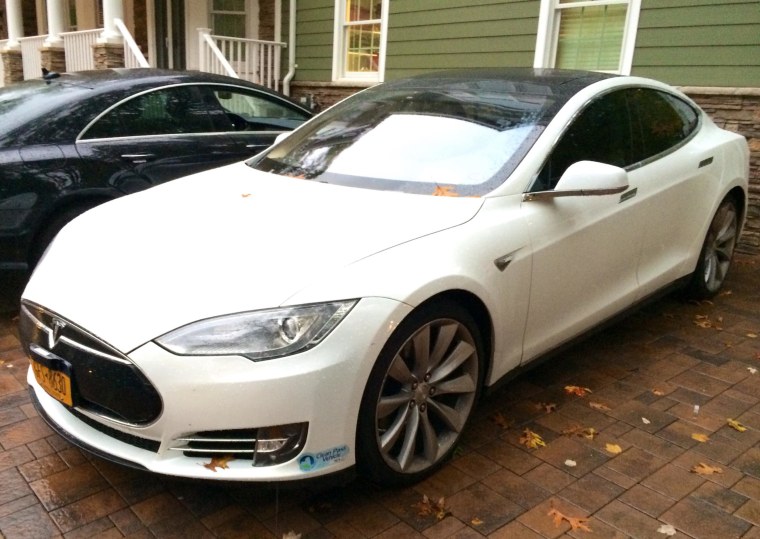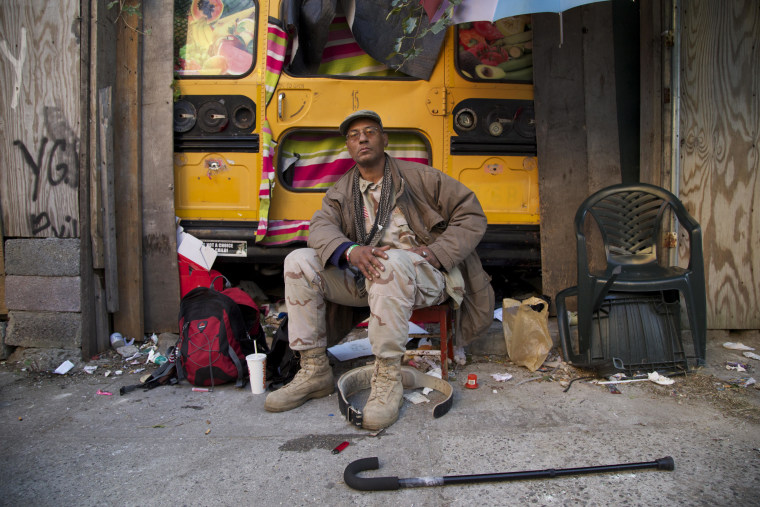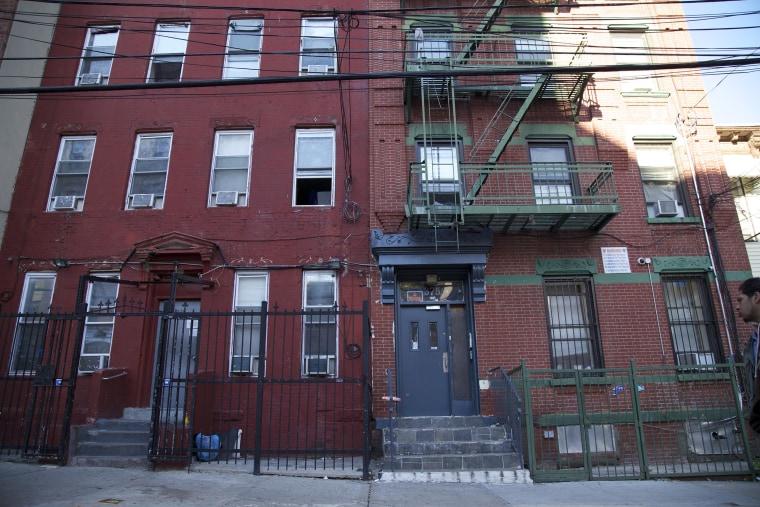Prosecutors say the father and son who ran one of New York’s largest drug treatment programs committed fraud and spent taxpayer millions on luxury cars and vacation homes while their patients lived amid rats and bedbugs, but authorities fear shutting down their programs could put thousands of addicts on city streets.
In late October, U.S. Attorney Preet Bharara asked for a civil injunction to stop Narco Freedom from continuing what he described as “an ongoing fraudulent kickback scheme.” This came six days after New York State Attorney General Eric Schneiderman indicted owners Alan and Jason Brand on criminal charges of fraud and money laundering.
"Narco Freedom is not truly functioning as a not-for-profit corporation but is rather a corporation operated for the personal benefit of Mr. Brand," Robert A. Kent, general counsel to the state's Office of Alcoholism and Substance Abuse Services (OASAS), wrote in an affidavit filed as part of the state’s case. The Brands strongly contest the allegations.
Read The Crime Report's Original Story on Narco Freedom
Narco Freedom receives nearly $40 million annually from Medicaid, and because of their indictment the Brands are now barred from running any Medicaid-financed operation. But their programs live on, and continue to receive Medicaid funding, because they provide methadone to 10 percent of New York City’s heroin addicts and housing for hundreds of patients, many of whom are returning from jail and prison. More than 3,000 people could be left without treatment, according to court testimony and interviews, if Narco Freedom and associated businesses were shuttered.
Read The Crime Report's Version of This Story
The headquarters of Narco Freedom is a rundown, concrete slab of a building in the South Bronx, one of the poorest areas in New York City. On a recent day, patients milled outside, waiting for treatment, or for food from the truck that gives out free bagged lunches.
The Brands, however, enjoyed luxury cars, vacation homes in Florida, and generous benefit packages for which, according to state prosecutors, Narco Freedom footed the bill. Alan Brand earned $386,000 per year as CEO of Narco Freedom, among the highest salaries for an executive of a Medicaid-financed non-profit, according to a 2013 report from the U.S. House of Representatives.
Following the criminal indictment, state prosecutors froze Alan and Jason Brand’s bank accounts, their sprawling homes on Long Island and properties in Florida, and seized six cars, among them a Jaguar, a Corvette and a 2013 Tesla.

In addition to running Narco Freedom, a joint investigation by The Crime Report and NBC News has found that the Brands ran a series of side operations that did business with the drug treatment program.
There were at least six for-profit companies created “to systematically embezzle NARCO funds,” state prosecutors claim. The state criminal complaint said the firms submitted inflated invoices to Narco Freedom for services like construction and medical supplies, assuring that public dollars that came into their non-profit ended up in their for-profit coffers. Prosecutors say these potential conflicts of interest were never disclosed on Narco Freedom’s tax filings, in violation of the law.
In 2012, Jason Brand paid himself $526,000 through these companies, prosecutors say, in addition to his $109,000 Narco Freedom salary.
The Brands also operated nearly two dozen “three quarter” houses that provided a temporary roof for hundreds of addicts and those returning from prison -- as long as they were enrolled in Brand-controlled drug treatment programs. Federal prosecutors said in their request for an injunction that these houses, which conditioned residency on attending Narco Freedom programs, are at the center of a Medicaid-kickback scheme.
Follow NBC News Investigations on Twitter and Facebook.
In 2001, court documents say, Alan Brand approached a contractor named Jay Deutchman and proposed they start up a series of “three quarter” houses. Residents would use Narco Freedom’s outpatient treatment programs.
According to court documents, employees went into jails, prisons and detox programs promising the poor and soon-to-be-released a bed in a so-called “Freedom House” in exchange for attending the treatment programs. At their height, about 1,500 people lived in 21 “Freedom Houses,” mostly multi-story apartment buildings in poor areas, 14 of them owned by Deutchman, who also rented buildings to other treatment programs.
Most “Freedom House” residents paid $215 per month in rent through funds provided by the city’s Housing Resources Administration (HRA). But their residence required they attend counseling three to seven times per week, a formula prosecutors allege Brand designed to ensure profits. For that, Narco Freedom brought in $84 per person per counseling session from Medicaid.
The houses offered no clinical care on site, so they were neither licensed nor overseen by any city or state agency.
Patient rights regulations ensure patients are free from “undue influence” when choosing their provider -- a provision OASAS counsel Kent now says Narco Freedom appears to have violated by requiring “Freedom House” residents to use its services.
Complaints to OASAS obtained by Freedom of Information requests show OASAS was aware of Narco Freedom’s “three-quarter houses” as far back as 2008.

One agency that came to rely heavily on “Freedom Houses” was New York State parole. In early December, Department of Corrections and Community Supervision Deputy Commissioner Thomas Herzog testified in federal court that parole regularly directed those leaving prison to Narco Freedom in order to secure housing.
Herzog said parole officers knew parolees sent to “Freedom Houses” would subsequently be required to attend Narco Freedom outpatient programs as a condition of their housing, even if the parole officer wanted to direct them to other programs’ services. It was a deal parole was willing to make, he said, in order to secure housing for nearly 500 parolees.
“It becomes an issue of last resort for us,” said Herzog. “Sometimes we have to even settle on something that’s sub-optimal.”
The housing was often not just sub-optimal, but decrepit and dangerous, according to residents and city citations.
More than a dozen men sleep per room in some of the homes, which records show have been infested with bed bugs and rodents. Records reveal violations not only for infestations, but also for floors without hot water, mold, water leaking through ceilings and cracked walls.
"It's dirty, nasty. There's water leaking. They got rats,” said Rafael Valdez, a resident of a “Freedom House” on 154th Street in the Bronx. He said he was forced out onto the street after completing Narco Freedom’s program in September.
In federal court affidavits and interviews, residents also described open use of heroin and the synthetic drug K2, and overdoses in the homes.
Many residents stay because they are mandated by parole. Others say the roof of a Freedom House is better than none at all. And because regular attendance at outpatient treatment is a condition of keeping their beds, Medicaid money has flowed to Narco Freedom.
The company claims it always made clear it was a drug treatment program that offered housing as a perk, and patients were free to leave the housing to seek treatment elsewhere.
Federal prosecutors are calling this not a perk, but an ongoing violation of the federal anti-kickback statute.
In October federal prosecutors obtained a temporary restraining order barring Narco Freedom from evicting any residents who refused to attend its programs. They have now asked the court to permanently enjoin the company from requiring residents in its housing to attend Narco Freedom treatment exclusively -- an arrangement they claim is an illegal kickback. They have also filed to ensure that Narco Freedom does not evict residents without notice.
“Narco Freedom is committing fraud and violating the rights of its Freedom Houses residents, and will continue to do so without injunctive relief from the Court,” wrote federal prosecutors in a November filing to the court.
At a hearing in early December, Narco Freedom argued that the program used the houses to induce regular program attendance -- not as “remuneration” for services, better known as a kickback, but as an “evidence-based practice.”
“The housing is offered as an adjunct to the treatment and therapy offered by Narco Freedom, and, in fact, results in better clinical outcomes for the patients,” argued Narco Freedom attorney Linda Clark in a federal filing in December. She added that the housing would not be financially sustainable unless patients went exclusively to Narco Freedom.
At the December hearing, Clark argued a bed was hardly the kind of kickback the law was meant to address. "Nobody's giving people iPads or taking them to Atlantic City,” said Clark.

Moreover, attorneys for Narco Freedom asserted that passage of the Affordable Care Act changed the definition of “remuneration” to exclude remuneration that promotes access to care and poses a low risk of harm, which, they say, is what the Freedom Houses do.
A judge is set to rule on the federal government’s request for a preliminary injunction in January. Meanwhile, state prosecutors have asked for their own injunction that would appoint another treatment program, Acacia Network, to operate Narco Freedom. Narco Freedom is fighting both injunctions.
In October, Jay Deutchman pleaded guilty to falsifying business records and criminal tax fraud in connection with the “three quarter” houses, according to state court filings.
But through an attorney the Brands said they intended to fight the case.
“The charges against Alan and Jason Brand will be vigorously contested,” said attorney Richard Harrow. “Through their work at Narco Freedom, Alan and Jason Brand have provided extraordinary public service to the Bronx and the City of New York.”
“The drug and alcohol rehabilitation programs in addition to the mental health and primary care services of Narco Freedom have benefited tens of thousands of New Yorkers and have saved lives.”